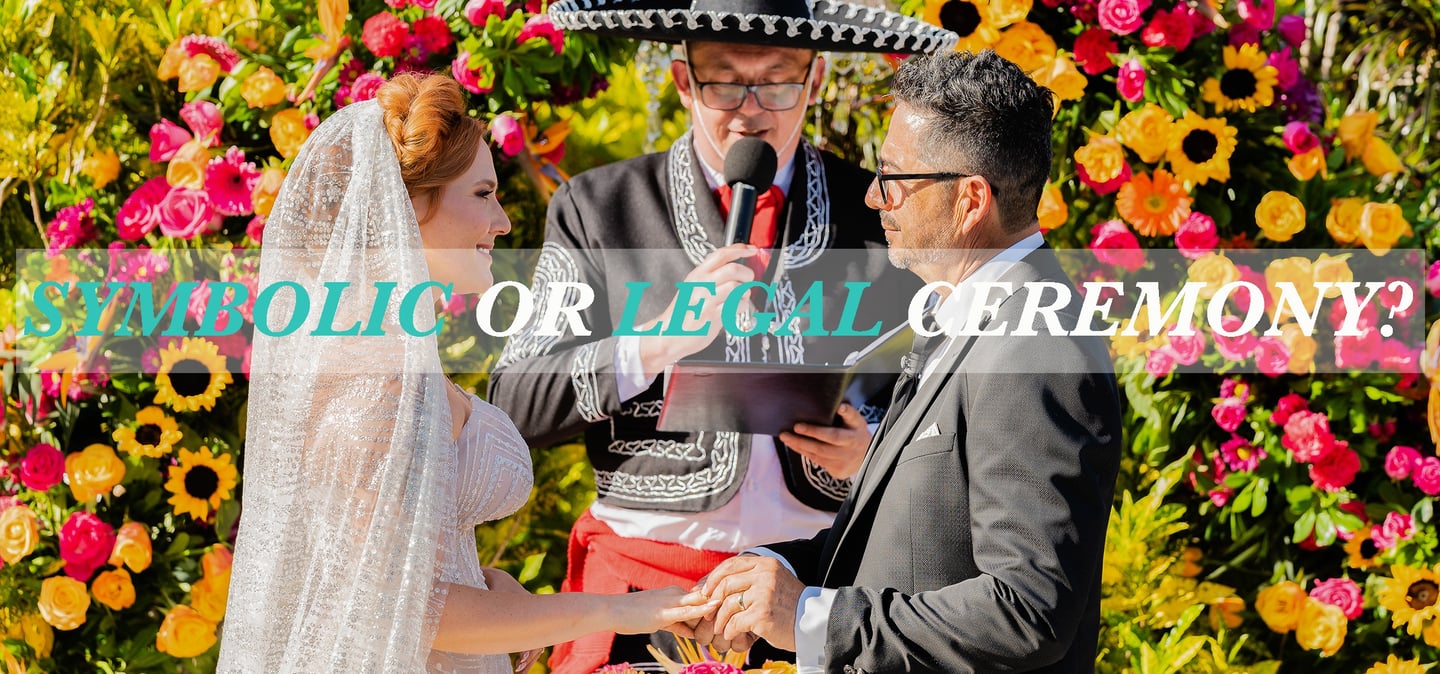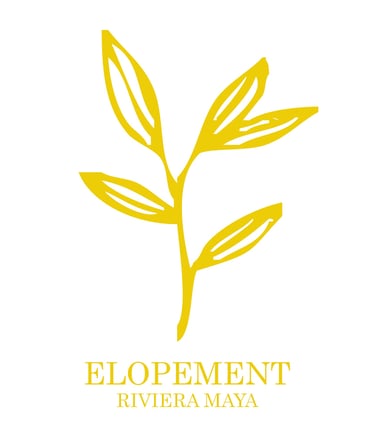
Symbolic or Legal ceremony?
Where is the difference from Legal and Symbolic ceremony in Mexico
1/19/20242 min read


Getting married in Mexico is certainly a very beautiful and exotic experience, but we need to know all the details in order not to have any problems with documents or get the wrong idea about what our union will be from a legal point of view or not.
First of all, we need to distinguish between a symbolic ceremony and one that has legal value in our country of origin.
The symbolic ceremony, as the name suggests, is a ritual that can be celebrated by an officiant, friend, shaman, or other person who wants to unite the spouses in marriage using a dynamic that can take on various aspects.
Undoubtedly, a professional officiant can give the ceremony a special touch and the spouses will enjoy a special atmosphere. Generally, the officiant agrees with the spouses on a script according to their tastes and the couple can then add their own vows to the ritual. The ceremony will have a symbolic and not legal value, even if the spouses often receive a certificate. Officiants can be contacted on site and generally there are no problems finding one in the spouses' language.
One of the most popular symbolic ceremonies is the Mayan or Shamanic ceremony. Mexico is a country where ancestral shamanism still lives among the people and there are people within local communities who still practice this ancient art. In the south of the country, in the Mayan zones, it is very easy to find shamans who celebrate these union rituals. However, be careful, often the ceremony is in the local language and without a doubt foreigners understand very little of what the shaman is saying. The atmosphere, however, is incredible, there are songs, sometimes dances, and rituals with copal smoke that give the ceremony something truly special. Even in this case, we are talking about a symbolic ceremony without legal value.
A low-cost solution is to have a ceremony of Elopement celebrated by a friend or relative, but in this case we recommend paying close attention to the preparation of it, in order not to ruin the moment and make mistakes that break the magic of the moment. Even in this case, the value of the ceremony is symbolic.
The legal ceremony, on the other hand, requires prior preparation and the collaboration of the authorities as well as someone who acts as an intermediary with them. The spouses can ask the judge to come to the place to sign the documents or make an appointment at the town hall to sign the documents. Once the documents are ready, they will be sent to the couple's home to be validated in their country of origin. Each Mexican state has its own rules and different timelines for the realization of a legal marriage and, as you can well understand, this procedure has bureaucratic costs.
We will explore the topic in more depth in the next post.
Here are some additional notes:
The legal requirements for getting married in Mexico vary depending on the state. In general, however, the spouses must be of legal age, not already married, and not related to each other by blood or marriage. They must also present certain documents, such as birth certificates, divorce decrees (if applicable), and passports.
The legal ceremony is usually conducted by a judge or other authorized official. It is usually held in a courtroom or other public place.
Once the legal ceremony is complete, the spouses will be issued a marriage certificate. This certificate is required to obtain a visa for one spouse to live in the other spouse's country.
A few words about the Elop ceremony in Mexico
Wedding and Elopement photo and video service since 2008 Cancun, Playa del carmen, Tulum. Mexico
www.photostudioab.com
Essential and minimal Elopement Planning at Playa del carmen, Riviera Maya and Tulum





